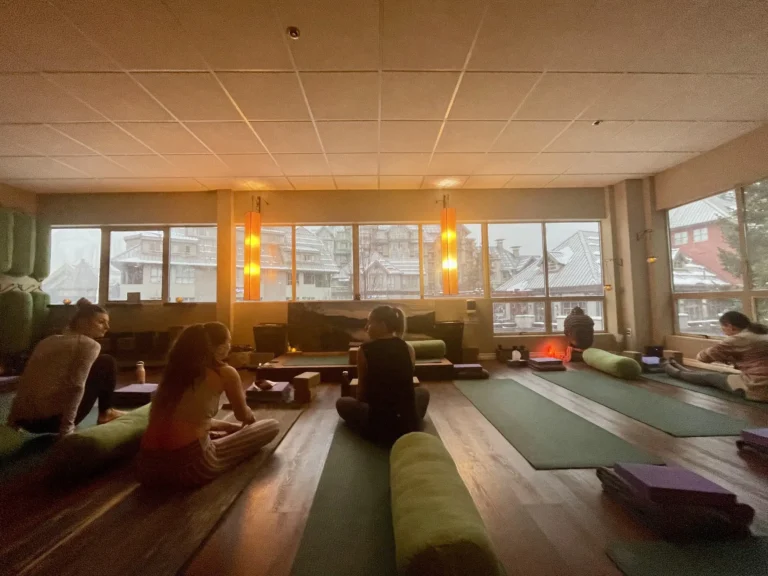I recently discovered an amazing locally-owned company, creating the most gorgeous athletic leggings over in Squamish. Initially I noticed the tights for their visual appeal, when I saw my yoga teacher wearing them. When I asked where she got them, she passionately began telling me about the company and its ethical practices, along with the eco-friendly materials used to create the tights. I decided I absolutely had to go and check out the website to see for myself. Before I knew it, I was subscribed to their mailing list, and had ordered my own beautiful pair of tights.
So why is this company such an inspiration to me and my yoga teacher? There are almost too many reasons. Bewildher was founded by Nadine Manson and has been operating in accordance with the slow-fashion movement. In contrast to fast, throw-away fashion, Nadine aims to reduce the wastage of excess stock by making her products to order, with the use of a pre-ordering system online. She creates long-lasting, high-quality products instead of the low-grade clothing that is mass-produced and sold globally to suit the trend of the moment at the lowest possible price for the consumer. On her website, Nadine defines slow-fashion as “a set of core values meant to inspire designers and brands who wish to take part, to find creative ways to be as eco-friendly, ethical and green as possible”.
Nadine certainly has found some creative ways to make her product eco-friendly, from ‘karma contests’ to the incorporation of 20 recycled plastic bottles into the material of each pair of leggings. The most recent karma contest, sent out to her mail subscribers and Instagram followers, was to plant a tree for $1 on onetreeplanted.org in order to enter the draw to win a pair of leggings. She also promises to plant a tree for every order made. Of course, the afore-mentioned reduction of stock wastage also means that Bewildher won’t be contributing to the 13 million tonnes of clothing that go into landfills each year.
As for the social impact of the brand, Nadine has made sure that “Bewildher’s garments are locally sewn and printed from materials locally sourced, and only sold in smaller independently owned boutique retail stores.” By choosing to make the garments in a local factory, Nadine has been able to make sure that the employees are paid fair wages, and she has posted behind-the-scenes photos of the factory on her website, so that customers know exactly where the products are made and who is making them.
Discovering Bewildher and the slow-fashion movement has been a very inspiring and thought-provoking experience, and one that I feel compelled to share, now that it is clear to me that there are a growing number of alternative businesses, who seek to reduce the damaging impact that the clothing industry has on the planet and the people involved in the production. I urge everyone to be more conscious of the impact that your purchases have, and to choose brands that offer an ethical social and environmental impact. You can find out more about Bewildher here or follow them on Instagram at @bewildher.



